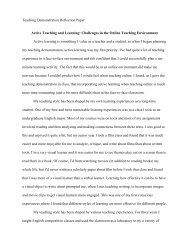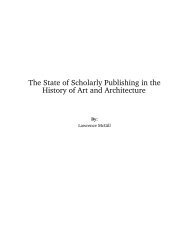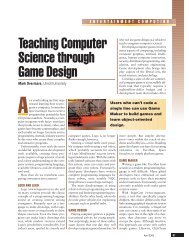South Carolina Public Library Economic Impact Study - Illinois
South Carolina Public Library Economic Impact Study - Illinois
South Carolina Public Library Economic Impact Study - Illinois
Create successful ePaper yourself
Turn your PDF publications into a flip-book with our unique Google optimized e-Paper software.
economy.” The brochure may be found athttp://www.oclc.org/reports/2003libsstackup.htm.<strong>Study</strong> Methods and ProceduresThe study consisted of two phases. The first phase was to gather and analyze datadirectly from users to determine their perceived value of <strong>South</strong> <strong>Carolina</strong> public librariesin four areas: General Use, Use for Business, Use for Personal Investment, and Use forJob Seeking. This was a general population, self-selected sample of individuals whocame into public libraries or visited the public library web sites during the March 2004.The argument for using this sample is that the perceptions of those who make use of aservice provide a good measure of its value. The actual value or impact of such serviceswould be difficult if not impossible to identify or measure with available methodologies.March was selected because it usually is considered to be an “average use” month withfewer holidays, school opening or closing, and other special events that could affect theuse of public libraries during other months.• During the month of February 2004, the web-based survey instruments’ URLswere distributed to all public library directors via email with the assistance of<strong>South</strong> <strong>Carolina</strong> State <strong>Library</strong> staff and tested. Four separate data gatheringinstruments were employed: Adult General User, Business User, PersonalInvestment User, and Job Seeker.• Each county was provided unique URLs by the <strong>Study</strong> Team which identified thatcounty’s patron responses for each of the four surveys. These URLs, in manyinstances were linked from the individual library web pages.• For those public libraries that were unable to or preferred not to post the URLs foreach survey to their web site, it was recommended that they print out enoughsurveys for patrons, and then the local staff entered the patron responses on thetheir unique URLs. The <strong>Study</strong> Team worked individually with those that electedthis option. Hard copies of all the surveys were provided to each library.<strong>South</strong> <strong>Carolina</strong> <strong>Public</strong> <strong>Library</strong> <strong>Economic</strong> <strong>Impact</strong> <strong>Study</strong> 10






